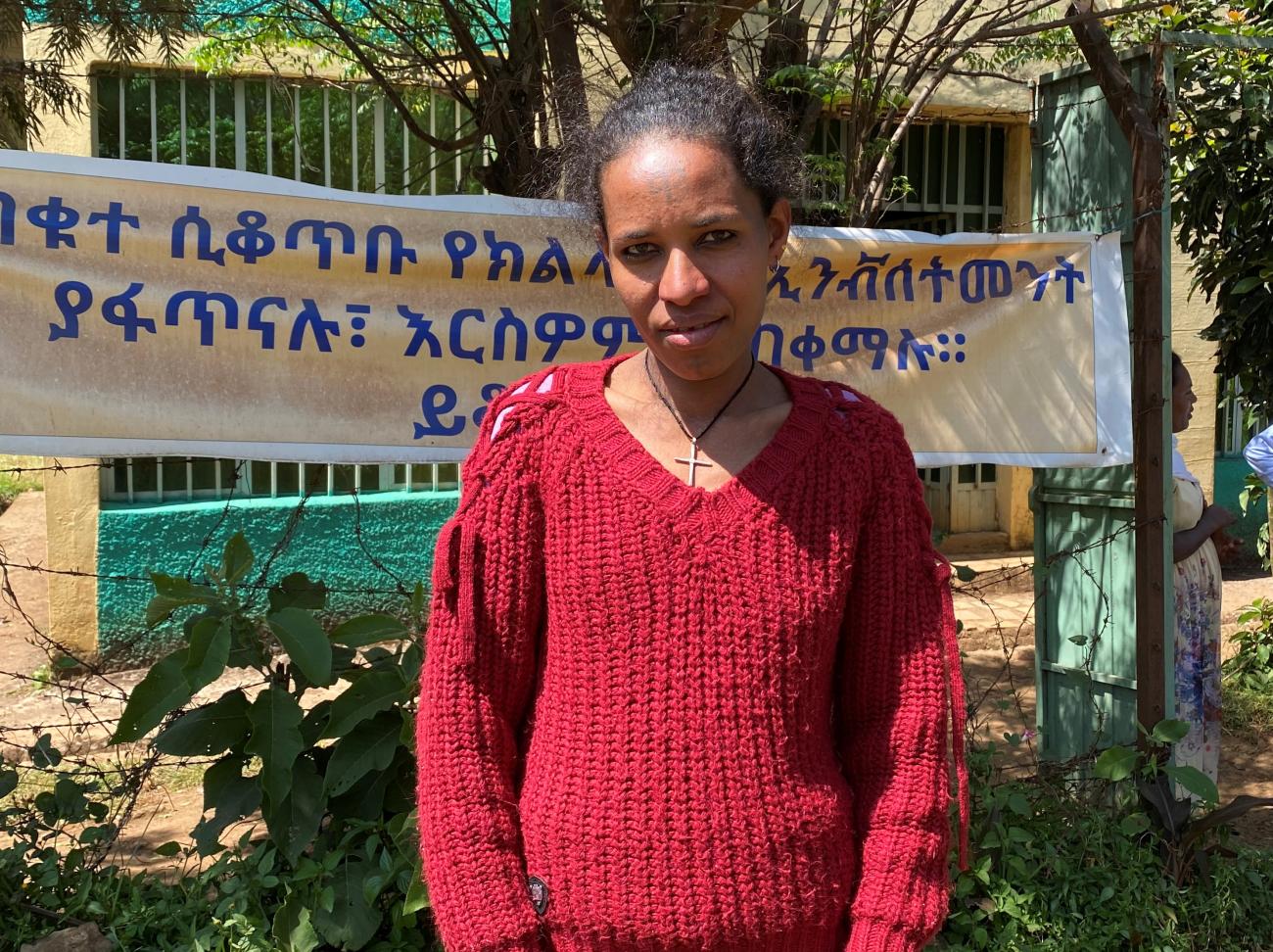Cash transfer to returnee migrant workers promote entrepreneurship in Ethiopia

Migration is increasingly perceived by many as the only way out of poverty in Ethiopia, especially for the rural youth.
Tigist Endalamaw, 28, is a mother of an 8-year-old daughter from West Gojam, Merawi Woreda, Amhara Region, Ethiopia.
Tigist married at the age of 20 and her marriage sustained only for two years. She was forced to divorce as her husband was not happy with her after giving birth to a girl child.
As a result, Tigist started living together with her eight family members, including her brothers, sisters and mother.
Lack of employment opportunities back in her village, limited income generating opportunities and burden of keeping her family members alive including her daughter become quite difficult for her. Tigist then decided to go to Lebanon to work as domestic worker. She had a schoolmate working in Lebanon and from whom she received the information she needed and learned to know about the opportunity. They used to communicate through Facebook and that opened her a door to go to Lebanon.
Tigist paid ETB 5,000 ($100) to a local agent to process her documents to go to Lebanon through regular a channel. She was told that she would get $ 200/month as salary. “When I arrived in Lebanon, I was forced to pay additional two months’ salary to the local agent linking me to the job,” Tigist said. After getting the job, Tigist was only paid $150/month as salary.
As Tigist did not face any kind of harassment and abuse, she wanted to stay in Lebanon for four years, but her dreams were shattered by COVID-19 outbreak.
After working there for one year, the COVID-19 pandemic made her life miserable. During the pandemic, Tigist’s employer stopped paying her salary. She was only allowed to stay and have food in return for her work without salary. She received salary for only one year and had to work without salary for another one year. This forced her to think about returning to Ethiopia, but that was not easy. With the support of Ethiopian Embassy in Lebanon, Tigist was able to return home after two months of efforts.
“I came to Ethiopia without a single penny as I was not paid for almost a year and whatever was paid earlier, I remitted all to the family,” Tigist explained. When she returned, she found out that whatever money she sent back home from Lebanon was all spent on family’s subsistence.
Tigist was unable to find any employment and had no capital to start any kind of small business. But she wanted to do something to support the family and for the education of her daughter. Tigist tried to sell roasted corn on the roadside, but the income generated from this business very minimal.
That was when Tigist became enrolled to the ILO FAIRWAY. It was part of the COVID-19 response, committed to providing support to the returnee migrant workers, as cash transfer, in order to meet their immediate needs for three months.
Tigist was one of the returnee migrants out of 806 who received such an assistance from the program. “I received first cash transfer of ETB 1,500 (US$ 32) and from that moment I was just thinking about starting some other small business that may provide me with more benefits,” Tigist said.
“I chose to start selling of home-made alcohol by investing the money I received from the program that was to help meet my immediate needs.”
She thought that if she uses this for meeting the needs, she will not be able to sustain her income and the family later. The business of locally brewed liquor was comparatively more profitable and that raised her confidence to invest the remaining cash transfer of ETB 3,000 ($ 64) that she received in two instalments.
“I am so happy and feel so fortunate to get such an opportunity and support,” Tigist said. Though the cash provided by the programme is not such significant, some migrant returnee workers like Tigist effectively use it to improve their livelihoods.
By investing all the amount received under this assistance in local alcohol business, Tigist is not only able to meet the immediate needs of the family but also save some money every day to expand her business. “I am trying my best to expand my business to maximize my profit,” Tigist said.

